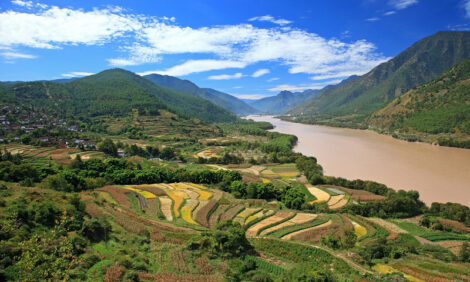



Milk crisis evades resolution in Pakistan
PAKISTAN - Around more than a month has gone by but milk prices have not ceased to fluctuate, causing intense crisis in the milk market, and leaving consumers to bear the brunt.The city government and consumers seem to lay the blame on the retailers, but the retailers and wholesalers have in turn passed the buck on to the dairy farmers, the main suppliers of milk in town.
“We had a strike on Sunday, to pressure the dairy farmers, and we would have had another one the following day, but they succumbed to our pressure,” says Malik, a milk retailer. He explains that the dairy farmers suffered a great loss on Sunday when all milk shops were closed because of the strike. Consequently, it was informally “decided” that they would try and make a deal with the retailers and wholesalers and let them sell the milk at a higher price, Rs32 per litre.
However, according to several retailers, the meetings, which were held among the cattle farmers, the retailers and the wholesalers, failed and no decision has been reached as yet.
“The dairy farmers are facing expenses that cannot be ignored at any rate,” retaliates Haji Rashid, the finance officer of the Dairy Farmers Association. “Our costs have increased of the cattle fodder, as well as transport costs, the water bill, and even the cattle maintenance. We have suffered immensely because of this rise in prices, and the entire blame cannot be solely laid upon us, for the increase in milk prices.”
Rashid’s complaint is echoed by other members of the Dairy Farmers’ Association. The rise in prices in fodder ingredients has been sharp, almost double. For instance, khul (cattle-feed) which was sold at the rate of Rs300 in a 50 kilogram bag, is now being sold at Rs800 for the same amount. In between, the price of khul had even risen to Rs1000. Another ingredient for fodder, choker, which was previously sold at the rate of Rs150 in a 37 kg bag, is now sold at Rs 300. Hay (bhoosa) which was sold for Rs100 for 100 kg is now being sold at Rs250. Most of the other composites of the cattle-feed have become more expensive and according to the farmers it is hard for them to keep up with these prices. Haji Rashid says that the water bill has also doubled, leaving the farmers in a quandary concerning the overhead costs. He says it used to be Rs2280 per month, which has now increased to Rs5000.
According to the farmers, this is a situation that is beyond their control, and claim that the city government is responsible for this. Rehan, a milk retailer says that the City Nazim has refused to lower the prices for fodder, and the price ceiling remains at Rs28 per kilogramme for milk at retail outlets. However, he says, the maintenance of the price would only be possible, if the costs are lowered at all levels in the milk business, starting from the dairy farmers down to the retailers. “We cannot keeping selling at these prices when our costs are not being met,” he says.
Source: The News


